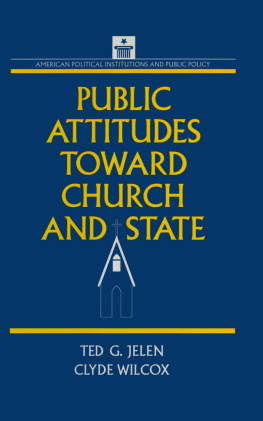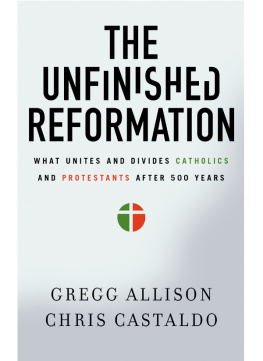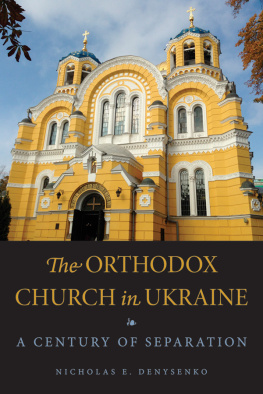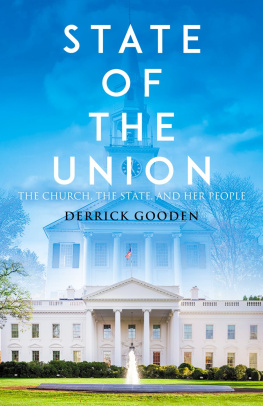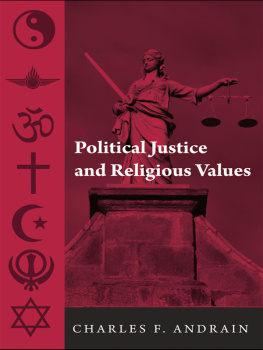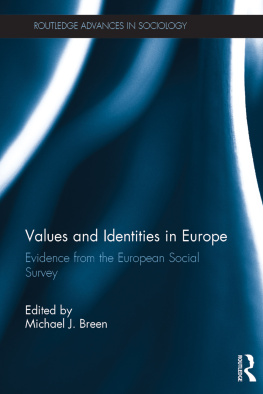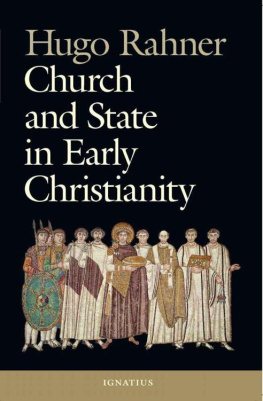PUBLIC ATTITUDES TOWARD CHURCH AND STATE
AMERICAN POLITICAL INSTITUTIONS AND PUBLIC POLICY
Stephen J. Wayne
Series Editor
VICTORY
How a Progressive Democratic Party Can Win and Govern
Arthur Sanders
THE POLITICS OF JUSTICE
The Attorney General and the Making of Legal Policy
Cornell W. Clayton
A KINDER, GENTLER RACISM?
The Reagan-Bush Civil Rights Legacy
Steven A. Shull
CONGRESS, THE PRESIDENT, AND POLICYMAKING
A Historical Analysis
Jean Reith Schroedel
RISKY BUSINESS
PAC Decisionmaking in Congressional Elections
Robert Biersack, Paul S. Herrnson, and Clyde Wilcox, Editors
PUBLIC ATTITUDES TOWARD CHURCH AND STATE
Ted G. Jelen and Clyde Wilcox
FINANCING THE 1992 ELECTION
Herbert E. Alexander and Anthony Corrado
AMERICAN POLITICAL INSTITUTIONS AND PUBLIC POLICY
Public Attitudes Toward Church and State
Ted G. Jelen
Clyde Wilcox
First published 1995 by M.E. Sharpe
Published 2015 by Routledge
2 Park Square, Milton Park, Abingdon, Oxon OX14 4RN
711 Third Avenue, New York, NY 10017, USA
Routledge is an imprint of the Taylor & Francis Group, an informa business
Copyright 1995 Taylor & Francis. All rights reserved.
No part of this book may be reprinted or reproduced or utilised in any form or by any electronic, mechanical, or other means, now known or hereafter invented, including photocopying and recording, or in any information storage or retrieval system, without permission in writing from the publishers.
Notices
No responsibility is assumed by the publisher for any injury and/or damage to persons or property as a matter of products liability, negligence or otherwise, or from any use of operation of any methods, products, instructions or ideas contained in the material herein.
Practitioners and researchers must always rely on their own experience and knowledge in evaluating and using any information, methods, compounds, or experiments described herein. In using such information or methods they should be mindful of their own safety and the safety of others, including parties for whom they have a professional responsibility.
Product or corporate names may be trademarks or registered trademarks, and are used only for identification and explanation without intent to infringe.
Library of Congress Cataloging-in-Publication Data
Jelen, Ted G.
Public attitudes toward church and state / Ted G. Jelen and Clyde Wilcox.
p. cm. (American political institutions and public policy)
Includes bibliographical references and index.
ISBN 1-56324-148-X (alk. paper). ISBN 1-56324-149-8 (pbk. : alk. paper)
1. Church and stateUnited StatesPublic opinion.
2. Religion and stateUnited StatesPublic opinion.
3. United StatesPublic opinion.
I. Wilcox, Clyde, 1953
II. Title. III. Series.
BR516.J45 1995
322'.1'0973dc20 95-17896
CIP
ISBN 13: 9781563241499 (pbk)
ISBN 13: 9781563241482 (hbk)
To William J. Wilcox
The world bears witness to much sectarian religious violence. Bosnia, Northern Ireland, and, of course, the Middle East illustrate the extent and persistence of the problem. In the name of religion people fortify and fight for their beliefs. In the process they impinge on the interests, needs, and rights of others.
Americans, thankfully, have been spared much of this violence. Religious controversy in the United States has occurred primarily within the legal and political system rather than outside it.
Political conflict over religious beliefs is what we would expect in a free society that respects these beliefs but prohibits the antisocial behavior they may sometimes promote. The framers of the American Constitution got it right. Their solution to protecting the nation's rich but diverse religious heritage was to create a system in which religion and religious organizations could flourish but not dominate the social order. The constitutional embodiment of this solution was the First Amendment's establishment and free exercise clauses plus the absence in the document of any religious tests for holding office.
The politics of protecting the free exercise of religion and preventing the establishment of religion have changed over the years as succeeding generations have attempted to redefine constitutional boundaries in a manner that conforms to their beliefs and practices. Today those politics impact on the policy debates over the role of government in society, the parameters of federalism, the dimensions of the welfare state, and the issues of crime, punishment, and due process of law. How far should government go in permitting or preventing religious activities? Should the national government impose standards on the states in the name of basic individual rights? Where should the line be drawn between promoting the general welfare and indirectly aiding religion or between maintaining law and order and curtailing religious activities?
These questions raise difficult issues that public officials must address. In a democracy where legislators enact public policy, where executives implement that policy, and where judges adjudicate cases arising from that policy, government officials must be aware of public opinion and, to some extent, responsive to it. They must balance their responsiveness with their constitutional oath, personal preferences and beliefs, and perceptions of the public interest writ large.
For a responsible democratic citizen, knowledge of religious beliefs and the political views that emanate from them or coexist with them is essential. This book contributes to that knowledge. It is based on a national survey of public opinion and poll of elite opinion (both conducted for the Williamsburg Charter), a community-based survey of public opinion in Washington, D.C., and focus groups in Washington and Chicago. Authors Ted Jelen and Clyde Wilcox synthesize public and elite opinion over a range of church and state issues. Their objective is to discern the impact of religiosity on politics. They focus specifically on the tension that the separate but coexistent institutions of church and state produce within the political order.
The authors describe a rich tapestry of religious pluralism in America and its various political manifestations. In a population that is sharply divided between those with secular and those with sectarian beliefs; in a society in which the proportion of religious fundamentalists has grown significantly in recent years; at a time when religious groups are well organized, take stands, communicate effectively, and have become a powerful force within political parties as well as among the general public; the description and analysis in this book makes an extremely important contribution to our understanding of politics and policy in the 1990s.
Stephen J. Wayne
Georgetown University
As we write this in early 1995, the U.S. Congress has a newly elected Republican majority. After the Republicans pass the major legislation promised in their "Contract with America," House Speaker Newt Gingrich has promised to consider a constitutional amendment permitting organized, "voluntary" prayer in public schools. Republicans argue that amending the Constitution is necessary because the U.S. Supreme Court has ruled several times that organized school prayer violates the establishment clause of the First Amendment to the Constitution.

